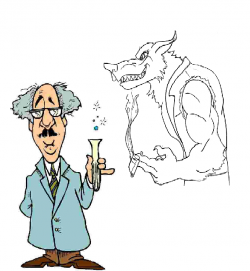Halifax Media Co-op
News from Nova Scotia's Grassroots
Halifax
Living theory #2: What would a revolutionary research agenda look like?

2:00pm
Saturday December 4 2010
Conflicted whether your time in the academy is well spent? Embarassed to go out in your labcoat because you're unsure if the the people outside of the ivory tower give a damn about what you're doing, maybe even give you dirty looks?? Afraid that one day someone like Jonathan Swift (author of Gulliver's Travels) will make satire out of your experience??? Are you seeking answers to these and other such burning questions???? Well, this might just be the thing for you!
Living Theory #2
What is the role of scientific research in revolutionary movements? Can science be liberatory? What would a revolutionary research agenda look like? In this installment of Living Theory, health policy PhD student Andrea Smith aims to provoke discussion of why we ought to be critical of calls for more scientific research. Exploring Marx’s ideas of materialism and science, we'll examine how the world we live in shapes the types of research questions we pose (and which we answer) and the way we answer them (and which answers are considered legitimate). Using health research as a case example we’ll discuss how defining health as a scientific problem obscures its moral, political and economic dimensions.
About Living Theory -
These are discussions about topics that affect our lives, trying to understand how capitalist social relations play out into every sphere, and what effect this has on us and the rest of society. The project is coordinated by Asaf Rashid - handsofnothing@gmail.com
Comments
"Intellectuals are at once
"Intellectuals are at once beneficiaries of a bad society, and yet those on whose socially useless work it largely depends whether a society emancipated from utility is achieved — this is not a contradiction acceptable once and for all and therefore irrelevant. It gnaws incessantly at the objective quality of their work. Whatever the intellectual does, is wrong. He experiences drastically and vitally the ignominious choice that late capitalism secretly presents to all its dependants: to become one more grown-up, or to remain a child. . . . Intelligence is a moral category."- Theodor W. Adorno (1903-69), Minima Moralia (1944-47)
"Intellectuals are at once
"Intellectuals are at once beneficiaries of a bad society, and yet those on whose socially useless work it largely depends whether a society emancipated from utility is achieved — this is not a contradiction acceptable once and for all and therefore irrelevant. It gnaws incessantly at the objective quality of their work. Whatever the intellectual does, is wrong. He experiences drastically and vitally the ignominious choice that late capitalism secretly presents to all its dependants: to become one more grown-up, or to remain a child. . . . Intelligence is a moral category."- Theodor W. Adorno (1903-69), Minima Moralia (1944-47)
The site for the Halifax local of The Media Co-op has been archived and will no longer be updated. Please visit the main Media Co-op website to learn more about the organization.


